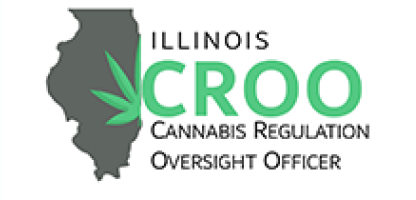Diversity Survey
The Cannabis Regulation and Tax Act (410 ILCS 705/7-30) mandates the Cannabis Regulation Oversight Officer (CROO) survey the Illinois cannabis industry annually to assess the diversity of the owners and employees in the industry, as well as the contractors/subcontractors working with the industry. The survey results are used to learn what barriers exist in the industry that would create challenges for anyone to enter the business market and to identify methods for reducing or eliminating any of those barriers. The CROO surveyed the industry in both 2020, 2021, 2023, and is currently conducting the 2024 Diversity Survey.
On May 8, 2024, the CROO distributed the 2024 Diversity Survey to both firms and cannabis employees. If you believe you should have received the Diversity Survey as a cannabis business or employee, please use the “Contact Us” page to request a link.
The Diversity Survey has three parts: (1) to the firms that own and/or operate the cannabis licenses at a corporate level, (2) to cannabis employees, and (3) to ancillary businesses that provide services to the licensees. The approach allows employees and contractors to self-identify their demographics and experiences. The CROO is partnering with the University of Illinois Gies School of Business to conduct the survey using Qualtrics survey software to be more user-friendly and usable for collecting the information. In 2024, we configured the survey to include many of the prior year’s answers to reduce the reporting burden for questions unlikely to change.
As of August 28 2024:
- CROO has received, reviewed, and approved 155 companies' survey responses. All licensed companies must complete the survey meaning about 54% of businesses have completed their 2024 survey reporting requirements.
- Over 2200 cannabis employees have submitted survey responses:
- Please use the “Contact Us” page to request a link.
In 2021, we received survey responses from 113 cannabis companies (100% compliance) and 4,483 employees (conservatively estimating a 40% response rate).
In 2023, we received survey responses from 134 cannabis companies (nearly 100% compliance) and 2,103 employees (conservatively estimating a 20-25% response rate).
Since 2021, the survey is distributed via email to cannabis businesses and employees. CROO follows up with all businesses to ensure completion and encourages employee participation through email, posters, and requesting support from the business employers.
Industry demographics from the 2020, 2021, and 2023 Diversity Surveys can be found here.
Read the Diversity Survey Section - 410 ILCS 705/7-30
Sec. 7-30. Reporting. By January 1, 2021, and on January 1 of every year thereafter, or upon request by the Illinois Cannabis Regulation Oversight Officer, each cannabis business establishment licensed under this Act and the Compassionate Use of Medical Cannabis Program Act shall report to the Illinois Cannabis Regulation Oversight Officer, on a form to be provided by the Illinois Cannabis Regulation Oversight Officer, information that will allow it to assess the extent of diversity in the medical and adult use cannabis industry and methods for reducing or eliminating any identified barriers to entry, including access to capital. Failure of a cannabis business establishment to respond to the request of the Cannabis Regulation Oversight Officer to complete the form, report, and any other request for information may be grounds for disciplinary action by the Department of Financial and Professional Regulation or the Department of Agriculture. The information to be collected shall be designed to identify the following:
(1) the number and percentage of licenses provided to Social Equity Applicants and to businesses owned by minorities, women, veterans, and people with disabilities;
(2) the total number and percentage of employees in the cannabis industry who meet the criteria in (3)(i) or (3)(ii) in the definition of Social Equity Applicant or who are minorities, women, veterans, or people with disabilities;
(3) the total number and percentage of contractor and subcontractors in the cannabis industry that meet the definition of a Social Equity Applicant or who are owned by minorities, women, veterans, or people with disabilities, if known to the cannabis business establishment; and
(4) recommendations on reducing or eliminating any identified barriers to entry, including access to capital, in the cannabis industry.
(Source: P.A. 101-27, eff. 6-25-19; 102-98, eff. 7-15-21.)

